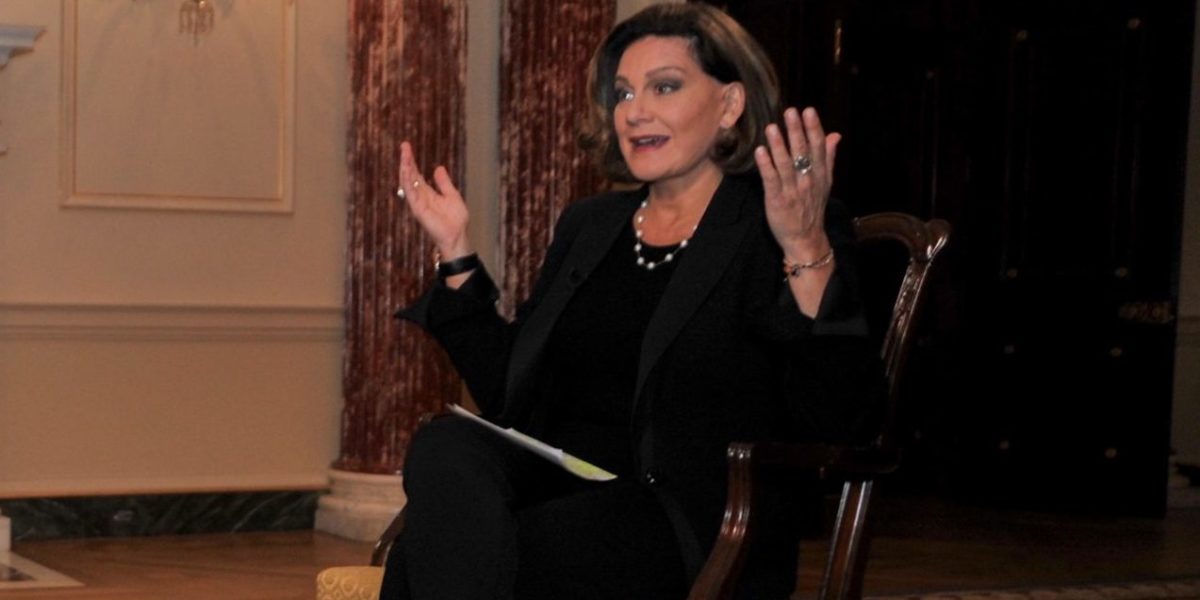You are no doubt aware of Bell Media’s catastrophic decision to fire Lisa LaFlamme without giving any reason except “a business decision,” opening the way for charges of sexism and ageism. You may also have heard about the online attacks against women of colour journalists. Corporations like Dove, Sports Illustrated and Wendy’s have jumped on the massive online bandwagon supporting LaFlamme, focussing on the right of older women to age in the workplace in general and to have grey hair, in particular. As an older woman with grey hair who still works in the media from time to time, I am glad to see the massive support for Lisa LaFlamme but I am much more concerned with the online hatred experienced by young women journalists and particularly Black, Indigenous and racialized women.
When I first heard about LaFlamme’s firing, I thought about my brief career as a broadcast journalist in the late 1990’s. I was the left-wing co-host of Face Off, a debate show. My co-host was right-wing and male. I was also known as a leader of the pro-choice movement and a famous feminist. Women would approach me everywhere saying, “We love how you give it to those guys.” You’d think I’d have gotten a lot of threats. I only got serious threats once and while the threats were gendered, they came after I reported that police attacked poor people at an Ontario Coalition Against Poverty demonstration when the rest of the media was blaming the protesters. I was pretty sure the source was the cops themselves. Maybe it was because we presented both right-wing and left-wing views on that show, so I decided to call Michele Landsberg, who was the first out feminist columnist in Canada in the Toronto Star starting in the late 1970’s, when feminism in Canada was just getting going.
Michele told me that she didn’t get a lot of threats either.
“Interestingly, in the flood of letters I received in the early days of writing my column —1978-1985—almost all were love letters from women, women who poured out their stories or just their excitement at seeing feminism in the newspaper,” she said.
Most of the anger and resentment, she said, was from right-wing men in the newsroom who were jealous of the success of her column. Later when email was available, Michele got more attacks but mostly based on her appearance and identity (Jewish).
“I didn’t let it get to me,” she added. “I was riding a wave and I felt invulnerable.”
That’s the thing with a movement, you feel protected. I got regular death threats and even physical attacks when I was a spokesperson for the pro-choice movement but that was part of the territory. That is not part of the territory for female journalists. They are supposed to be above the fray, observers, witnesses.
Needless to say, social media makes it much easier for furious men to attack women they don’t know. But the rise in online violence corresponds to the rise in gender based physical and sexual violence during the Covid years and the growth of the alt-right internationally and in Canada.
Back in the 80’s and 90’s the backlash to feminism was to stop the rise of women’s liberation and put us back in our place. Today it is to roll back the power some women have gained and by intimidating and attempting to silence the feminist journalists who bring a different perspective to the news.
Online harassment of female journalists is so widespread and international that gender online violence, GOV, is becoming a common term. The Canadian Journalism Foundation recently issued a report on GOV based on a roundtable called “Poisoned Well”.
The problem is international with UNESCO reporting on incidents around the world saying 73 per cent of women journalists experience online violence. One-third considered leaving their jobs because of it. And it is much worse for racialized journalists.
As we learned back in 1990, the best way to deal with a backlash is to move forward even more. Gender based violence is one area where despite increasing awareness, we have made little progress in ending it. That’s why I am happy to see such massive grassroots and even corporate support for Lisa LaFlamme. But we need the same kind of organizing to defend Black, Indigenous and all women journalists who are experiencing harassment. Ending violence against women and trans people is the mountain left to climb for feminists and now, more than ever, we need the support of men in the newsroom and outside of it.




